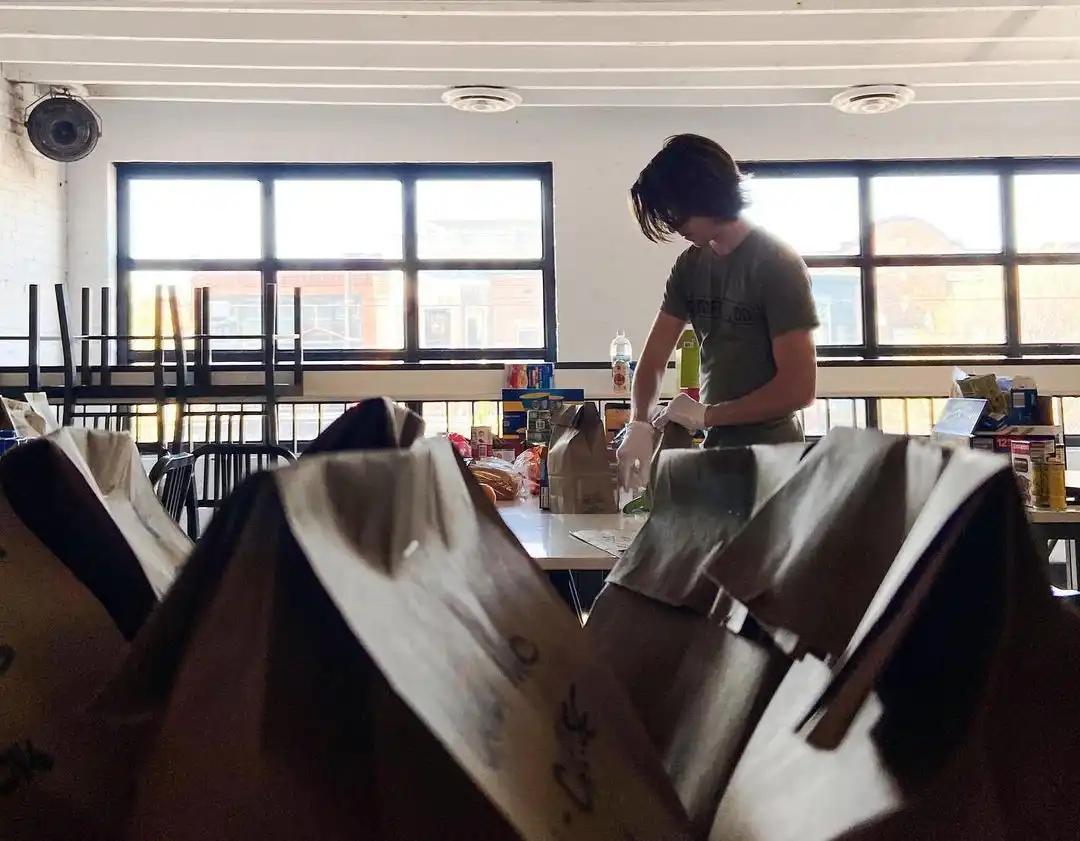A Resilient Community
by Isaac Smoker, Form VI
3 min. read — February 26, 2021
The days following the murder of Martin Luther King, Jr. on April 4, 1968 featured the most costly riots in American history. The frustration of black communities was palpable, but none was like Washington, DC. The epicenter was H Street, home of the Atlas Theater and hub of black culture. For four nights the street burned, leaving only hollow remains of a place thousands called home. When my parents bought a house behind the Atlas Theater, H Street was an afterthought. Slowly businesses began to appear: a Popeye’s, a clothing store, a taco spot. Suddenly H Street had a heartbeat, and then it took off.
H Street was where I got my first job working the line at Bullfrog Bagels. Bullfrog was active in an art scene that had captivated the rejuvenated region. This led to Bullfrog hosting many popup art shows featuring local artists. There I met Chris Clayton, or as DC knows him, CHRiS CARDi. Chris had come to DC in 2012; he instantly fell in love with the community and his clothing brand reflected it. Chris’ “I Love H ST'' shirts became synonymous with the neighborhood, and his clothing was commonplace around DC. The thriving restaurant scene on H Street was painfully halted when Covid-19 reached the District. Suddenly, thousands of jobs were gone. These were my coworkers, Chris’ neighbors, and our friends. Chris, who had grown up in Florida and spent years displaced by hurricanes, began looking for ways to help. He teamed up with a cafe called Maketto next to Bullfrog and used the corner to hand out cereal, fruit, and whatever else he could give. Soon Covid had shut down St. Anselm’s and I had little to do. I reached out to Chris and offered my time and truck to help.
Suddenly in a stagnated society, we had a purpose and an effect everywhere we looked.
What began as two of us using donations to fill carts with food quickly became hours spent daily packaging meals. Fortunately, our third partner came to the rescue. Andy had moved to the city the April before and had contacted Chris offering his time. He possessed the same love for DC that showed in all of us as we spent hours packing, sorting, and delivering food. Soon it became not a sacrifice, but a dependence; in a world of social distancing, we were the only other people we would see. Suddenly in a stagnated society, we had a purpose and an effect everywhere we looked. The food drive became what got us out of bed in the morning. Chris did interviews from Maketto, Andy would stop by while walking his dog to restock, and I took online classes while sorting food and labeling bags.

On May 25, 2020, George Floyd’s murder was videotaped. DC froze and mourned. Then we erupted. We painted the streets, washed mace off our eyes, and screamed their names even louder. At Maketto, Chris was already brainstorming ways to help. The food drive transitioned to also act as a station to hand out water bottles, signs, and bandaids. Adversity had not had enough of us, however. During the protests, Maketto was looted. The food drive was unharmed but thousands of dollars’ worth of art, cash, and equipment were stolen. The following day was spent sweeping up broken glass, but within hours Chris and I were handing out food before any rebuild had started.
Home reminds some people of family, friends, or childhood. I’m reminded of a coffee shop, an artist named Chris, and a community that will never say die.
In July, Chris sent the text we knew was inevitable. He felt that our job was done, and the community could support itself again. We sullenly agreed and soon we were at Maketto disassembling the shelves where we had served over ten thousand meals to our neighbors. I still stop by Maketto to say hi. I still see Andy and Chris biking or walking dogs. Home reminds some people of family, friends, or childhood. I’m reminded of a coffee shop, an artist named Chris, and a community that will never say die.